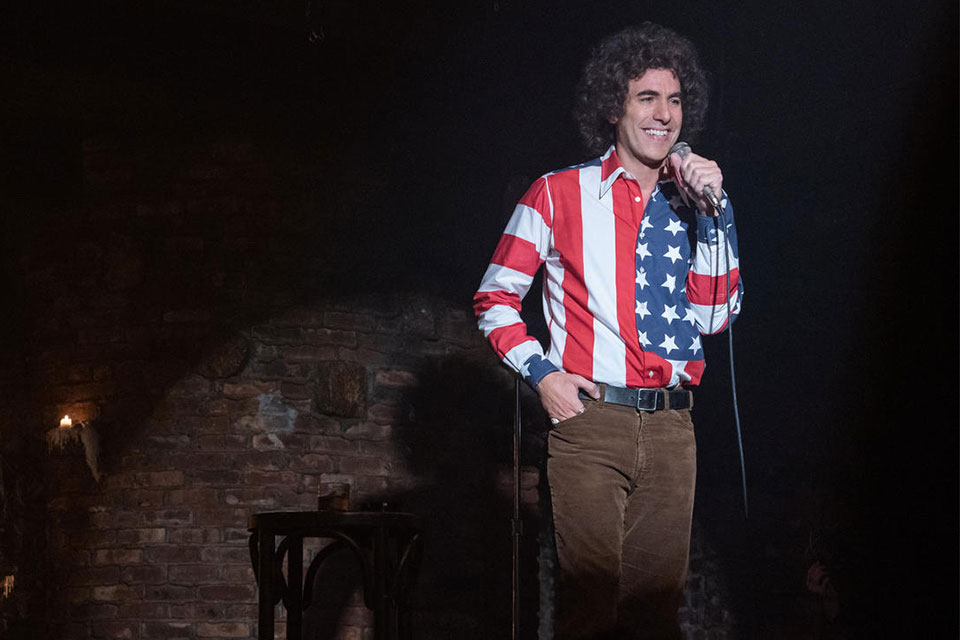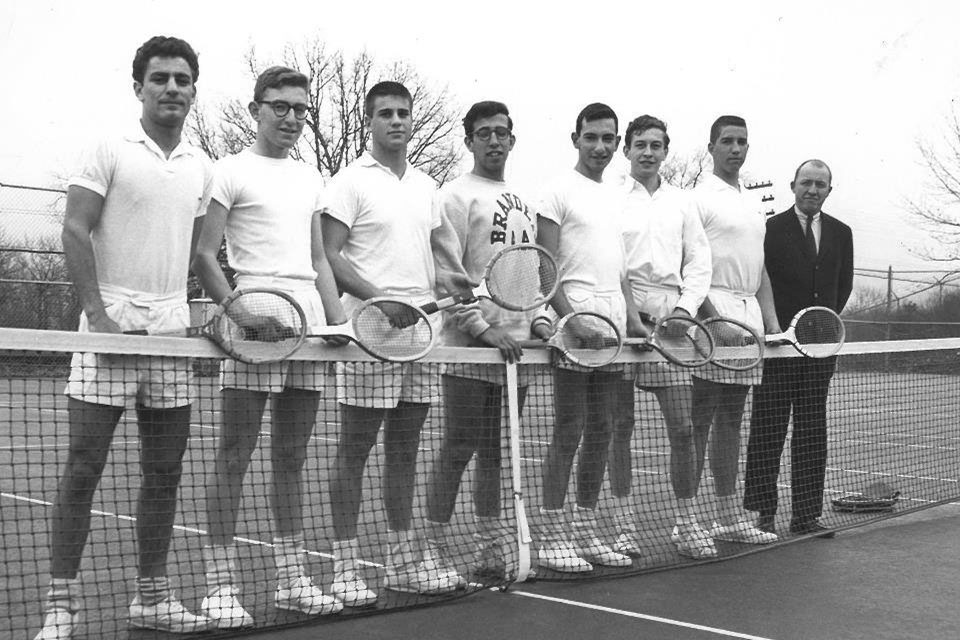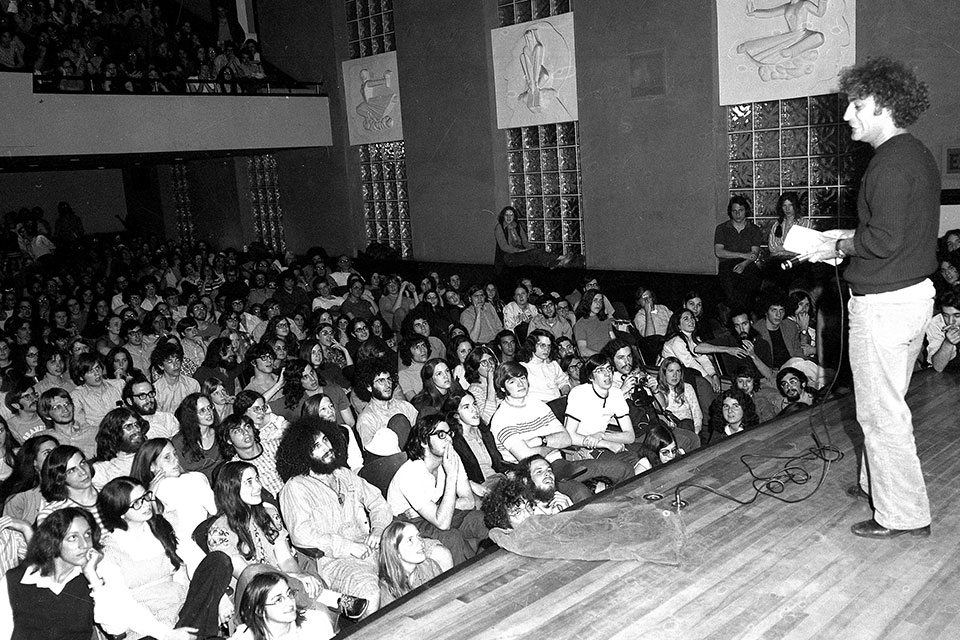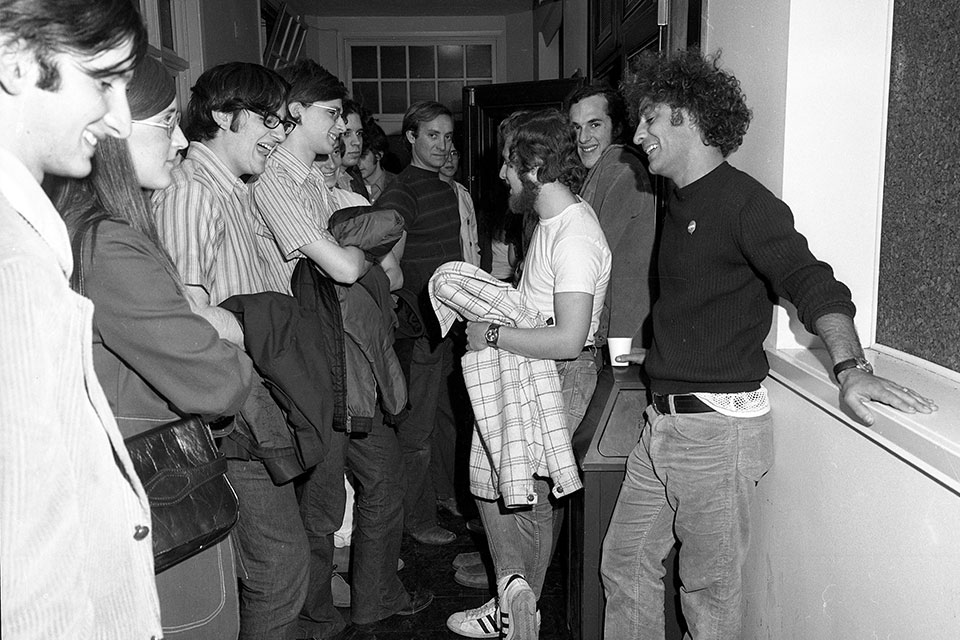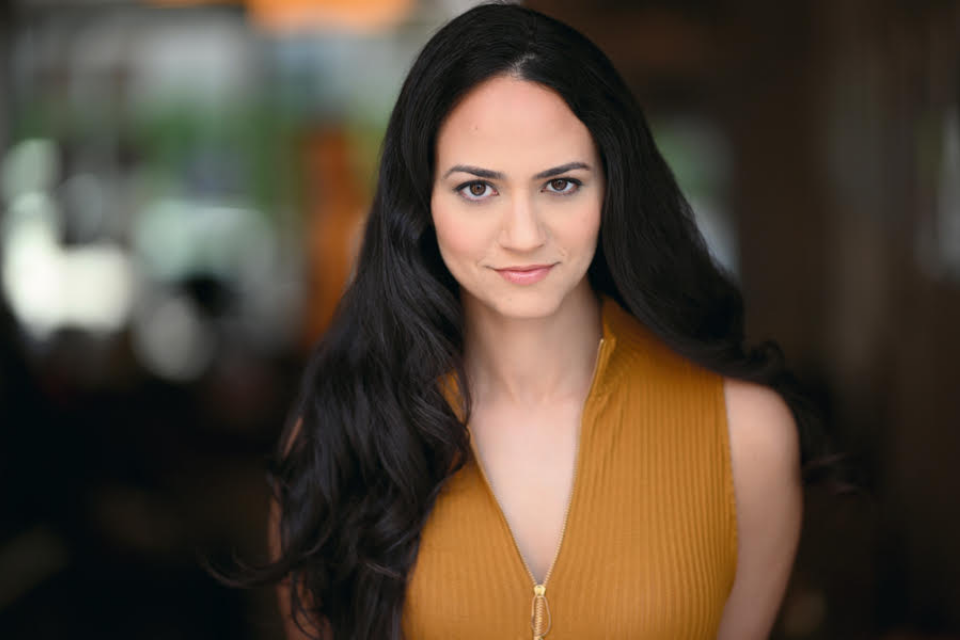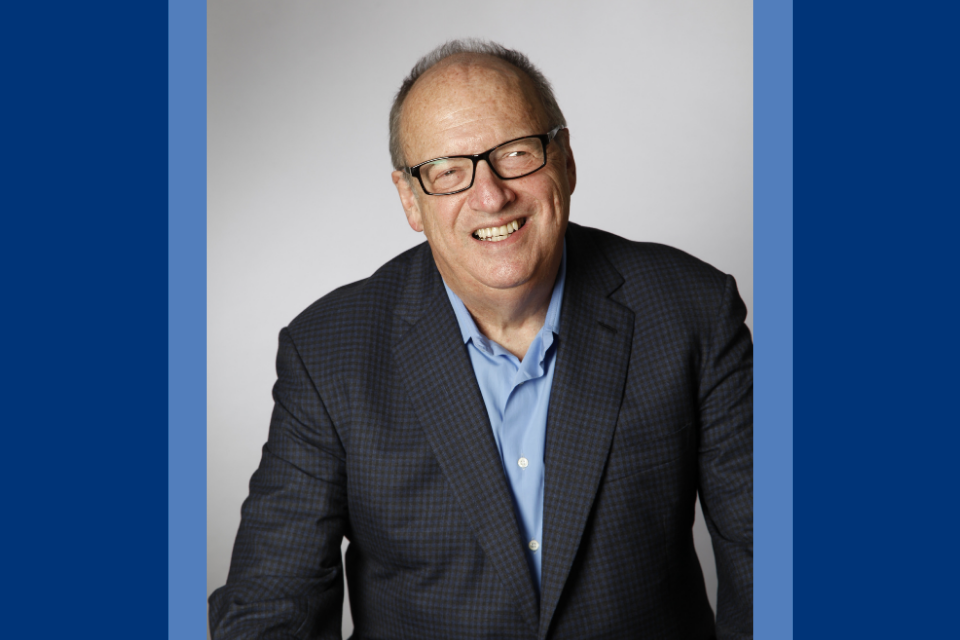Brandeis Alumni, Family and Friends
Sacha Baron Cohen Portrays Abbie Hoffman ’59 in New Netflix Drama
November 4, 2020
Champion of Flower Power. Founder of the Yippies. Defendant in the Chicago 7 conspiracy trial.
And the guy who sold the subs on the Brandeis campus.
Abbot “Abbie” Hoffman ’59 (1936-1989) was a man of parts. Portrayed by Sacha Baron Cohen in Aaron Sorkin’s new Netflix film “The Trial of the Chicago 7,” Sixties counterculture icon Hoffman occupies a distinctive place in Brandeis lore.
“He was both a radical and a jokester,” writes historian Stephen Whitfield, PhD’72, the Max Richter Professor of American Civilization, Emeritus, at Brandeis, spotlighting Hoffman in his newly-released book, “Learning on the Left: Political Profiles of Brandeis University.”
“He was the merriest activist that the left ever bestowed on America,” Whitfield writes.
“Bouncing through the late 1960s and the 1970s with kinetic energy, Hoffman held a ‘flower in a clenched fist,’ he later insisted. Inside it, he should have mentioned, was a joy buzzer, to be pressed against the body politic.”
If Hoffman’s antic behavior in court made headlines during the Chicago 7 trial in 1969, his skill on the court was noted at Brandeis 10 years earlier.
Marty Zelnik ’61 was a teammate on the 1959 Brandeis tennis team that Hoffman captained to an undefeated season. “Abbie was what we called in those days a ‘pusher,’ a quick defensive player who pushes back any shot he can chase down,” Zelnik said. Hoffman also was an “excellent ‘retriever,’” proficient at returning difficult shots, he said.
John Farrar ’60 recalls partnering with Hoffman in doubles. “He hit everything back, kept everything in play,” Farrar said. “I learned something about his tenacity and aggressiveness.”
Zelnik recalls the Hoffman style: “Abbie owned a fairly new maroon Chevy Corvette convertible. I remember him driving around campus with the top down, weather permitting. His parents did not buy this for him. His own sweat equity enabled him to buy it.”
Hoffman’s side hustle as a Brandeis student? Selling submarine sandwiches at a markup.
“Abbie negotiated a deal with a shop in Waltham,” Zelnik said. “He’d buy, say, 150 subs: tuna, egg salad, roast beef, Italian. He would then buy another 50 sub rolls, water down the premade subs by thinning out ingredients, then sell those as new subs. How do I know this? Abbie told me!”
Brandeis Trustee Stephen Reiner ’61 was another teammate. “Abbie was a noticeable guy around campus,” Reiner said. “Everybody on the campus knew who he was, if not for his tennis team prowess, but for being the guy who sold the sandwiches every night in the dormitories.”
Hoffman never participated in any demonstrations as an undergraduate at Brandeis, Whitfield observes, noting: “The allure was educational.”
Hoffman himself recalled: “There were tons of great teachers, radical for that time, at Brandeis — Abe Maslow, who was my psychological guru; Herbert Marcuse; Frank Manuel.” In Hoffman’s view: “Brandeis and I were ideally suited.”
Hoffman’s father in Worcester, Massachusetts, however, blamed the campus political zeitgeist of Brandeis in the late 1950s for setting his son on the path to becoming a cultural revolutionary, in and out of courtrooms, frequently on the lam, Whitfield writes.
“Abbie ‘was such a bright student,’ a baffled and chagrined John Hoffman once told a reporter. ‘He could have been somebody, a doctor or a professor — now we have to read the papers to see which jail he’s in.’ ‘If it hadn’t been for Brandeis…,’ went the usual wistful paternal refrain.”
Sacha Baron Cohen, known for his comedic turns as Borat, portrays Hoffman in “The Trial of the Chicago 7,” which debuted on Netflix Oct. 16. “West Wing” creator Aaron Sorkin wrote and directed the film, which dramatizes the courtroom proceedings following the violent clashes between Chicago police and demonstrators at the Democratic National Convention in 1968.







